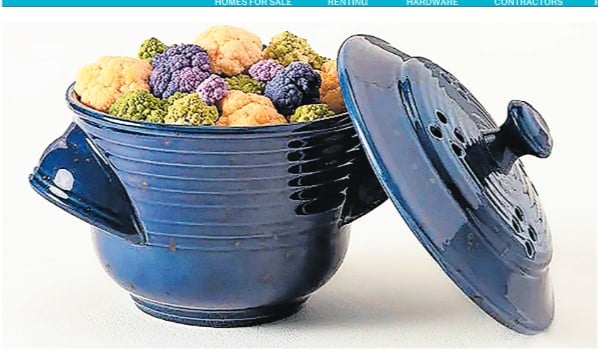Prime
Invest time, hard work for success in farming

A farmer in inspects a chillies garden. File photo
“Having courage to try something different cannot be underestimated. Many people do not ever develop their ideas because they never get started. This may be due to lack of drive, lack of confidence or just not knowing how to start.”
That is how Sharon Irene Alebo, the area manager, Sunshine Agro products, sums up the lessons learned as she shares experiences on managing a diversified horticulture enterprise.
She says, “Success in any new enterprise is possible provided you carry out research, plan carefully and prepare for hard work.”
Horticultural crops require intensive management and a significant investment of time, energy and money.
Most high-value crops are harvested by hand, requiring a significant labour input and will also require regular on-going management such as pest and disease control and irrigation.
Understand
Thus, the crops might be nice to look at and good to eat, but their cultivation will also be quite demanding.
A lot of small businesses stem from peoples hobbies and although diversification within an existing farm may be slightly different, it will still be important for a new enterprise to develop.
New entrants to farming face a changing industry that is under more pressure than ever before. If one is planning a career in horticulture agribusiness, it is essential to understand the challenges and the opportunities therein.
Success of a company is measured by a positive social impact on the farmers, specifically how the business helps them improve their livelihoods.
Good care
The primary driver for diversification is usually to lift income. Other benefits included improving welfare, spreading risk and reducing environmental impact.
Most horticultural crops require certain environmental characteristics to grow well.
They require relatively fertile soil type and can be sensitive to salinity. Nearly, all crops require good drainage and water availability.
According to Alebo, they established a dam in a horticulture farm and it is used to harvest water from the green houses and the rain. It can last for three to four months without drying out.
She adds that there is usually a shortage of water especially in July. Therefore, adequate water supply is required at the farm.
Horticultural crops commonly have specific storage requirements and are easily perishable. They need to be stored at cool temperatures and have specific humidity whereby, containers have to be suited to the storage environment.
Demonstration
After harvesting, crops are packed and sold in bulk especially using trays, cartons or boxes, which are strong enough to withstand humidity and weight when stacked.
However, to add value to the products, they package them under a brand name.
“Everyday, we get farmers seeking information on mixed cropping and an extremely wide range of new varieties of culinary and aromatic herbs, spices or fresh chilli, herbal infusions and tropical fruits,” says Alebo.
The firm she manages is a social enterprise established in 2007. It is found in Namala-Lubira, Bunjako Island in Mpigi District on a 32 acres.
It is an associate member of the European Spice Association and aimed at promoting agriculture as a business for the rural people.
The farm is used as a demonstration field for farmers in Mpigi and its neighbouring districts.
The creation of rural employment especially for the youths and women guarantees them sustainable incomes.
Five agronomists share the best practices with the horticulture farmers in the area, thus getting a good market for the products in both local and international markets.
Monitoring
Alebo says the products from the farm are free of chemical residues, free of mycotoxins and fully meet the health, food quality and safety standards of the consumer countries. They apply soluble organic fertilisers using drip lines.
She adds that they market a variety of fresh, dry, crushed and powdered yellow, red, green, orange and green chillies (Cayenne, Jalapeno, Habanera, Scotch Bonnet, Fatalii, Naga Morich, Devil’s Finger), fresh tropical fruits, herbs including chives, chamomile, fennel leaves, lemon grass, oregano, papaya leaves, parsley, catnip, ashwagandha, African tea basil and spices like gingers and curcumas.
Quality management starts in the field to monitoring the entire production value chain. This includes selecting good planting material, supervising farmers in the field during crop production throughout the harvest.
Markets
All herbs are purchased fresh from farmers and dried in solar dryers where the entire post-harvest processing is controlled, cleaning, blending, packaging and storing is fully monitored. The products are transported to European Union (EU) for steam sterilisation.
The insect nets are set up to reduce the heat from greenhouses and act as repellants to pests. Each insect net contains a disinfectant at the entrance.
Horticulture farmers mostly experience practical challenges like when the soil PH is very low and water retention is an expensive exercise. Therefore, open field irrigation should be done on a routine basis.
Alebo advises horticulturalists to apply stringing method for the supports. This is done so as to avoid branches from falling or breaking because fruits are always heavy.
Currently, Sunshine Agro Products exports more than 62,000 metric tones every year to America, European Union countries, the Caribbean islands such as Trinidad and Tobago, and several Asian countries




